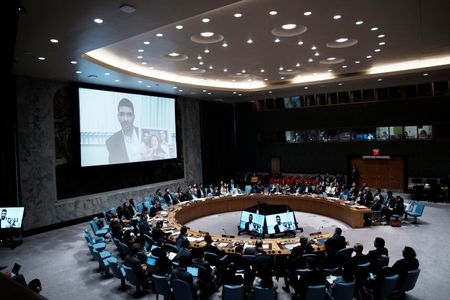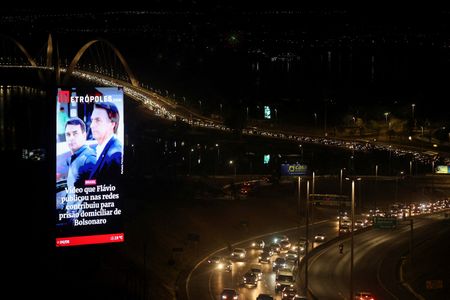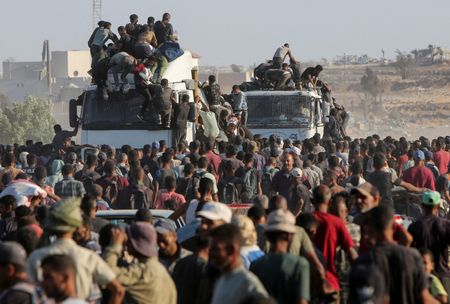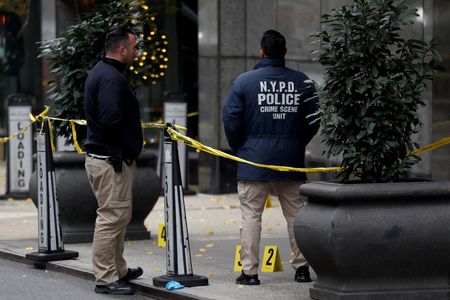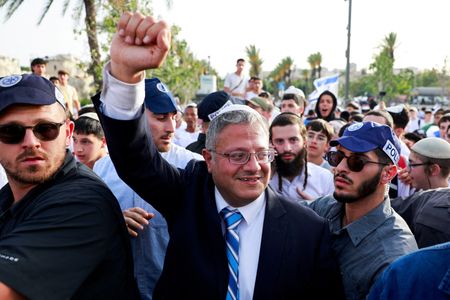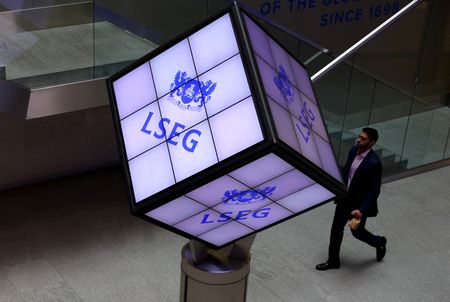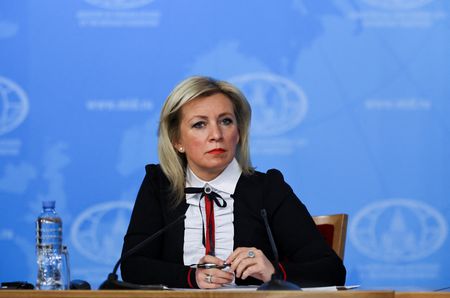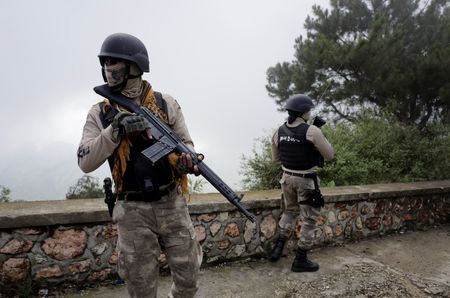By David Brunnstrom
(Reuters) -The United Nations on Tuesday called reports about a possible decision to expand Israel’s military operations throughout the Gaza Strip “deeply alarming” if true.
U.N. Assistant Secretary-General Miroslav Jenca told a U.N. Security Council meeting on the situation in Gaza that such a move “would risk catastrophic consequences … and could further endanger the lives of the remaining hostages in Gaza.
“International law is clear in the regard; Gaza is and must remain an integral part of the future Palestinian state,” he added.
Israeli Prime Minister Benjamin Netanyahu met senior security officials on Tuesday to finalize a new strategy for the nearly two-year-old war in Gaza with media reporting he favored a complete military takeover of the Palestinian enclave.
China’s deputy U.N. representative, Geng Shuang, expressed “great concern” about the reported plans and added: “We urge Israel to immediately halt such dangerous actions.”
He called for a ceasefire and urged countries with influence to take concrete steps to help bring one about.
Ahead of the U.N. meeting, Israeli Foreign Minister Gideon Saar addressed reporters at the U.N. and criticized countries that sought to pressure Israel by recognizing a “virtual” Palestinian state, saying this had “assassinated” a hostage deal and ceasefire and prolonged the war.
Three Group of Seven countries have announced plans to recognize Palestinian statehood. France and Canada have said they would do so in September at the U.N. General Assembly. Britain said it would also back Palestinian statehood in September unless Israel takes substantive steps to end suffering in Gaza, where it is fighting Hamas, and meets other conditions.
The U.S. ambassador to the U.N., Dorothy Shea, called a U.N. conference last week that saw dozens of ministers urge the world to work toward a two-state solution between Israel and the Palestinians an “unproductive publicity stunt,” and said it had undercut the efforts of mediators.
The brother of Israeli hostage Evyatar David, who was shown appearing emaciated in a video released by Hamas last week, told the Security Council to use its leverage to secure the immediate unconditional release of remaining hostages and to ensure humanitarian aid reaches them.
“Every moment of delay is a step closer to final tragic outcome,” Ilay David told the meeting.
He said the video showed his brother as “a living skeleton. He had barely the strength to move or speak, his voice barely recognizable,” the brother said, adding that neither he nor his mother could bring themselves to watch.
“We knew that if we did, we would be unable to function. My father and sister, however, felt they had to see him, to hear his voice, to feel him somehow. Now these images haunt them. My father cannot sleep, and my mother has not stopped crying ever since,” he said.
(Reporting by David Brunnstrom; additional reporting by Matt Spetalnick; Editing by Howard Goller and Stephen Coates)

